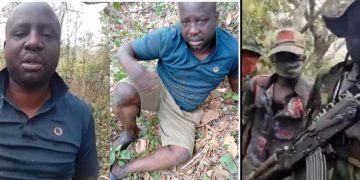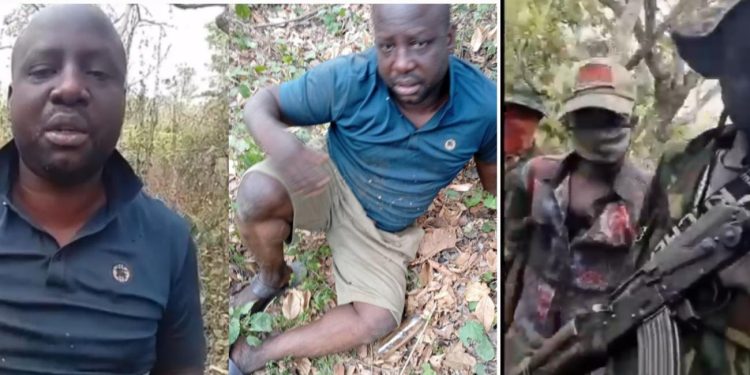Prince Eniola Ojajuni, the National Youth President of Afenifere, has expressed deep concern over a viral video showing armed individuals holding several people hostage. The footage, widely shared on social media, has sparked fear and outrage.
In a statement released on Thursday, Ojajuni revealed that he recognized two of the men in the video as members of the gang that abducted him during a recent trip to Abuja.
He called for immediate intervention by the Department of State Services (DSS), the Nigeria Police Force, the Nigerian Army, and governors from the Southwest region to track down the criminals and rescue the captives.
“I am extremely disturbed by what I saw in the video,” he said. “These are not strangers to me — I clearly identified two of the men. They were part of the group that kidnapped me. This situation is a national emergency and must not be ignored.”
Ojajuni, who survived a recent kidnapping ordeal, emphasized the urgency of government action to prevent further tragedies and hold the perpetrators accountable.
“This is the time for our security agencies to show that no one is above the law. We cannot allow such crimes to continue without consequences. People’s lives are on the line,” he added.
He also appealed to the general public to remain watchful and to assist security agencies by sharing any useful information that could lead to the suspects’ arrest.
Reiterating Afenifere’s commitment to justice and national security, Ojajuni affirmed that the group will continue to champion peace, safety, and protection for all Nigerians—especially the youth.
Ojajuni was abducted in February while traveling through Ondo State and spent 12 days in captivity before being released.
Speaking at a press conference after regaining his freedom, he described his experience as a wake-up call for authorities.
“On February 17, 2025, while traveling to Abuja, I was attacked near Akunu Akoko in Ondo State. The attackers, dressed in military-style uniforms and heavily armed, opened fire on my vehicle and abducted me along with others,” he recounted.
During his time in captivity, Ojajuni sustained two gunshot wounds—one dangerously close to his spinal cord—and suffered severe beatings.
“I was physically assaulted around 72 times daily. I witnessed other victims, particularly women, being abused in horrifying ways. The kidnappers were well-organized and carried more than 20 AK-47 rifles,” he said.
He disclosed that the gang operated multiple camps across different states, using advanced technology to monitor and evade security forces. According to him, there were 27 camps in Ondo, 16 in Ekiti, seven in Osun, and five in Ogun State.
Ojajuni also revealed that the ransom for his release had to be redirected from Ikare to Ibilo after the kidnappers detected security surveillance.
“They searched through my phone thoroughly, blocked certain contacts, and monitored my social media activity to avoid being tracked,” he said.















